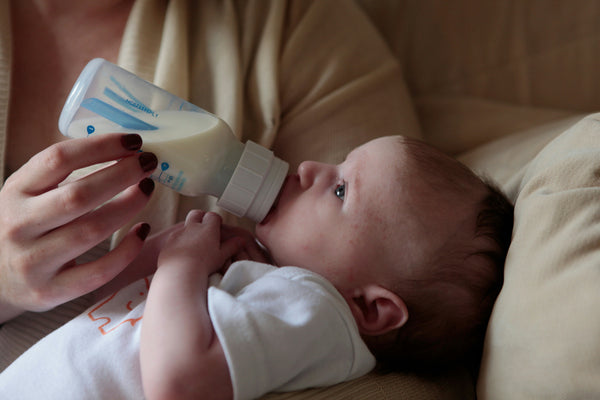Should You Give Your Kid Probiotics for Constipation?
share this article

Parents Are Turning to Probiotics. But Do They Really Help?
If your kiddo is struggling with constipation - going days without a poop, straining, or passing hard stools, you’ve likely considered trying a probiotic.
They're everywhere these days, from yogurt to gummies to powders. But before you grab the nearest bottle, it’s important to understand what probiotics can (and can’t) do.
Spoiler: They’re not a magic fix. But the right probiotic strain, when used consistently and alongside healthy habits, can support gut motility and improve stool regularity.
First, What Are Probiotics?
Probiotics are live microorganisms, usually bacteria, that, when consumed in the right amounts, can offer health benefits. They help support the gut microbiome, which plays a key role in digestion, immunity, and yes—pooping.
But here’s where most parents get it wrong: Not all probiotics are the same.
Different strains of bacteria do different things. That’s why you can’t expect just any probiotic to solve constipation. You need one that’s been clinically studied for stool frequency and gut motility in kids.
Strain-Specific Matters
Clinical research shows that strain-specificity is key—meaning the benefits you see depend on the exact strain used. Some of the most promising strains for constipation in kids include:
-
Bifidobacterium lactis (BB-12®) – shown to improve stool frequency and ease of passage in toddlers and older kids
-
Lactobacillus reuteri DSM 17938 – may reduce colic and improve motility in infants
-
Bifidobacterium breve – associated with better gut transit and stool consistency
Just seeing “probiotic” or “bifidobacteria” on the label doesn’t guarantee results. Look for strain names and clinical evidence.
What the Research Shows
-
A 2017 meta-analysis found that some specific Bifidobacterium and Lactobacillus strains could increase stool frequency and improve stool form in constipated kids [1].
-
In a 2020 trial, a synbiotic (probiotic + prebiotic) improved stool consistency and pooping frequency more than a placebo, showing the power of combining both [2].
Still, probiotics work best as part of a complete plan, not as a standalone solution.
Probiotics Are a Support, Not a Substitute
It’s important to know: Probiotics don’t replace fiber, hydration, or healthy eating habits. If your toddler’s diet is low in fruits, veggies, or fluids or they’re holding in their poop out of fear, no probiotic is going to solve the issue alone.
For best results, combine probiotics with:
-
Daily fiber intake (especially soluble fiber)
-
Adequate fluids
-
A consistent bathroom routine
-
And ideally, prebiotics that feed their gut bacteria (like those found in Growing Up Prebiotics, which contains chicory root inulin + 2’-FL HMO)
So, Should You Try One?
Yes, but with the right strain and the right expectations. Consider a pediatric-formulated probiotic with clinically studied strains, especially if your kid:
-
Has hard, infrequent stools
-
Recently took antibiotics
-
Struggles with gut discomfort, gas, or bloating
-
Needs additional gut support while building better eating habits
Start slow, use daily, and monitor stool changes over a few weeks. And always ask your pediatrician before starting a new supplement—especially if your little one has other health conditions.
Summary
Probiotics can be a helpful tool for kids with constipation, but only when you choose the right strain, use them consistently, and pair them with a gut-friendly routine. They won’t replace a healthy diet, daily fiber, or a potty schedule, but they can enhance all of the above and help nudge your kiddo’s gut in the right direction.
















